 Elvia Wilk
Elvia Wilk
Sinister sister, sister: adapted as a limited series, Cronenberg’s 1988 film about perverted twin gynecologists gets a girl-boss makeover.
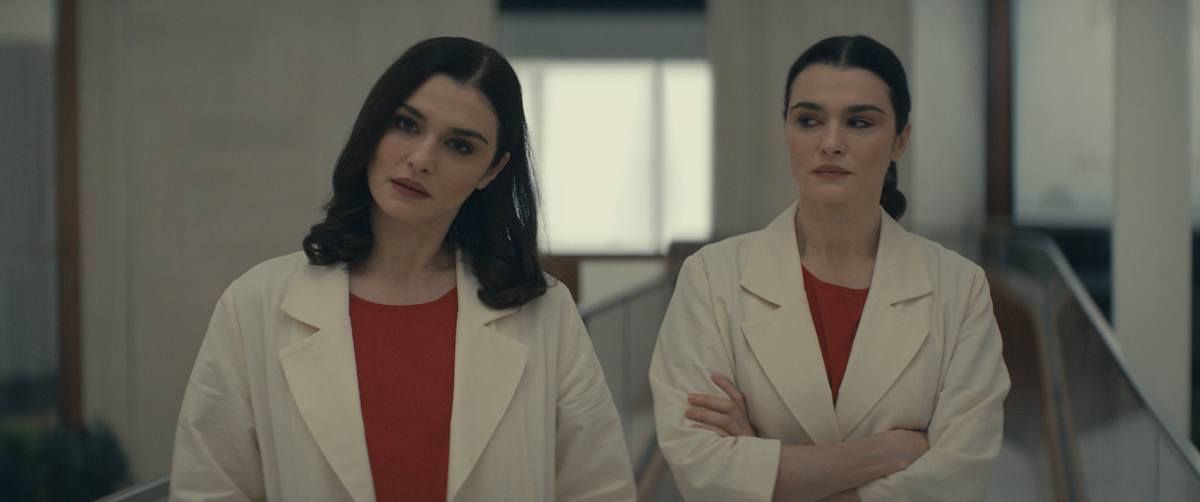
Rachel Weisz as Elliot Mantle and Beverly Mantle in Dead Ringers. Courtesy Prime. © Amazon Studios.
Dead Ringers, developed by Alice Birch, Prime Video
• • •
“TWIN DOCS DEAD IN POSH PAD” might be the best piece of baby-shoes-style flash fiction the Daily News has published as a title. Since the news first graced headlines in July 1975, the sordid and salacious story of the Marcus brothers has proven irresistible material—first, for several astonished journalists; then, for the coauthors of a 1977 novel, Twins; and famously, for David Cronenberg, who cast Jeremy Irons as both brothers for his 1988 Dead Ringers. Most recently, the writer Alice Birch has created a six-part limited series named after Cronenberg’s rendition, in which the brothers are turned into sisters, played by Rachel Weisz.
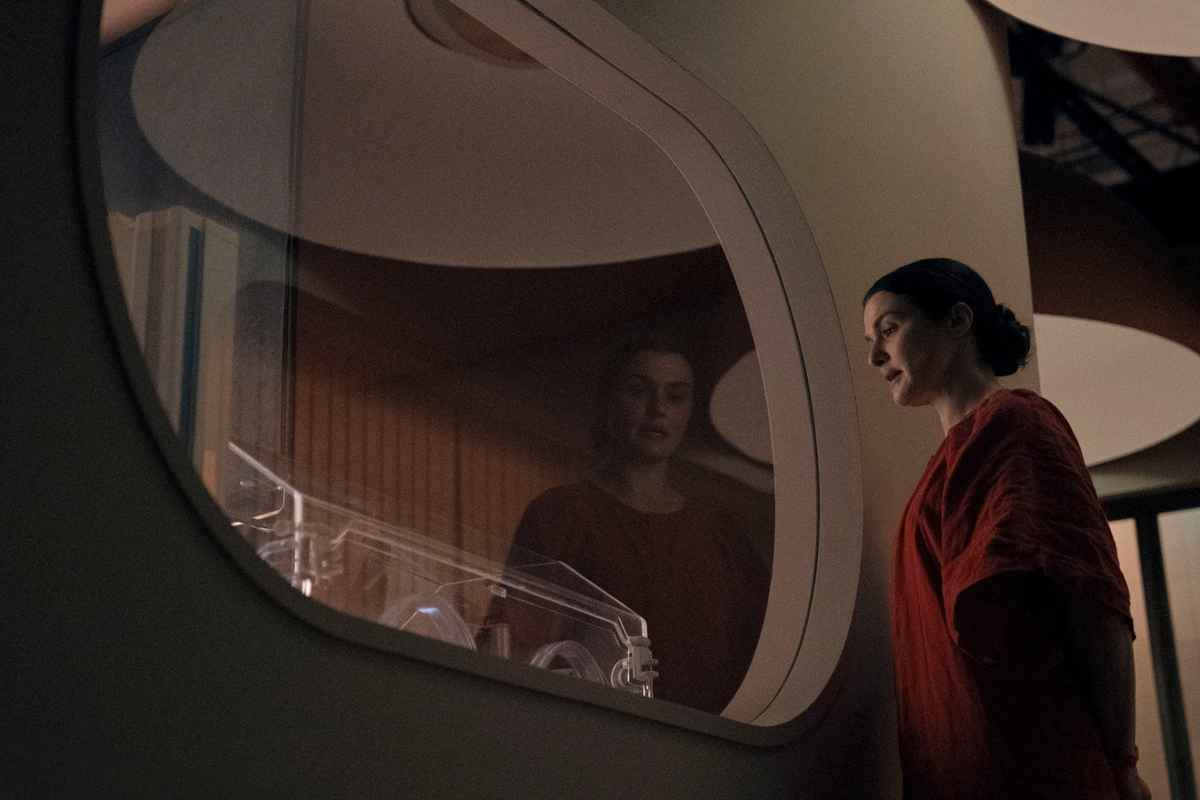
Rachel Weisz as Beverly Mantle in Dead Ringers. Courtesy Prime. © Amazon Studios.
Cyril and Stewart Marcus were identical-twin gynecologists. By the early 1960s, they were both on staff at two New York City hospitals and ran a private practice where they were renowned for their “miraculous” ability to get (wealthy) women pregnant. They were also sadistic monsters who wielded their medical authority like a blunt scalpel—witnesses describe them screaming at women who miscarried; fondling patients without consent; swapping places in the exam room (surprise!); showing up for surgery too blasted on barbiturates and amphetamines to stand up straight. Cyril may have ripped the anesthesia mask of a patient to huff from it himself. The hysterical husband of an abused patient may have pulled a gun in the office.
When the drug use—“declining performance”—became too egregious, the Marcuses were finally put on leave. Just over a week later, their indistinguishable rotting corpses were found inside their locked tenth-floor apartment, surrounded by feces and foot-high piles of trash.
Cronenberg, obviously, was well equipped to craft this vile tale, with all its Freudian provocations, into a stupendously unsettling body horror that breaks just about every taboo. His version of the brothers, Beverly and Elliot Mantle, impersonate each other, sleep with their patients, use medical instruments for BDSM play. They transgress one boundary after another, showing how deeply creepy we find it when the filial, the sexual, and the medical mix.
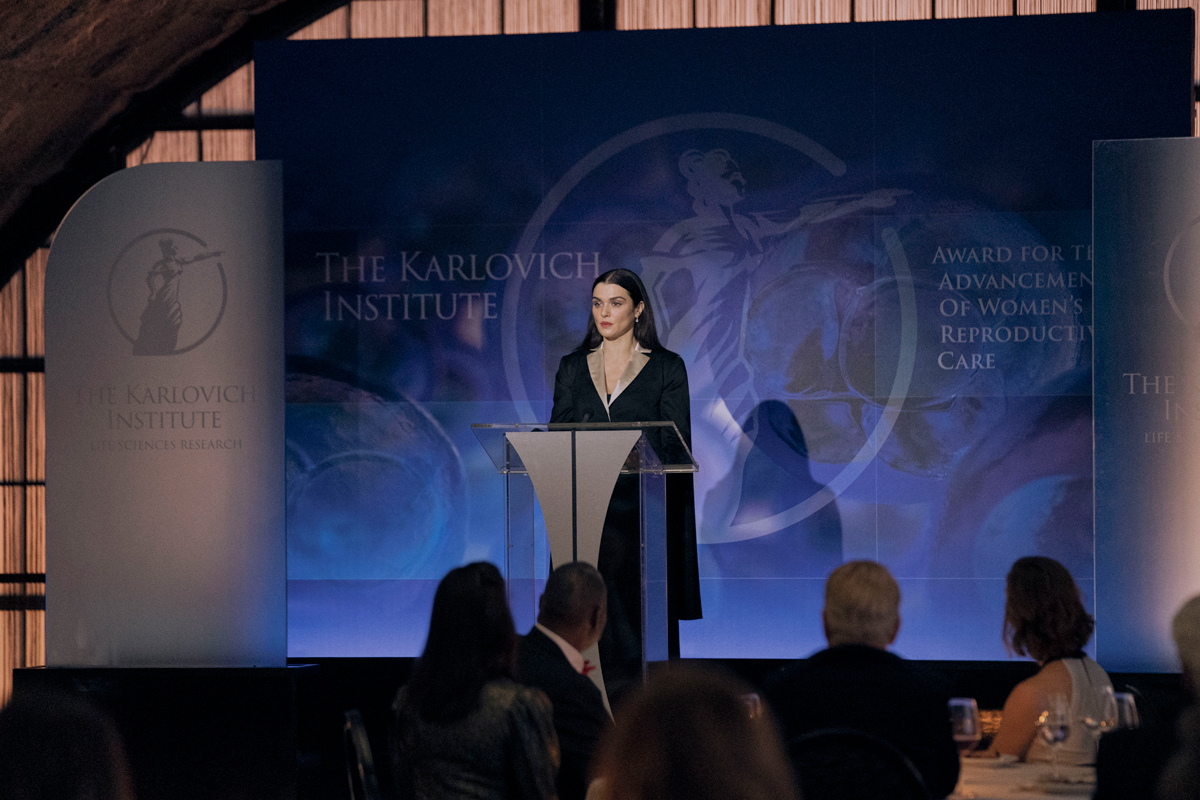
Rachel Weisz as Beverly Mantle in Dead Ringers. Courtesy Prime. © Amazon Studios.
The new limited series featuring Weisz as the lead(s) manages to convert this perverted setup, which genuinely disturbs the liberal American sense of moral and legal order, into a confused op-ed about Women’s Issues. Birch’s choice to gender-swap and girl-bossify the Marcuses is one of the strangest propositions to get funded by Amazon, and it produces a disturbing realization of a different order—that such a daring gambit could wind up pandering to an audience it purports to alarm.
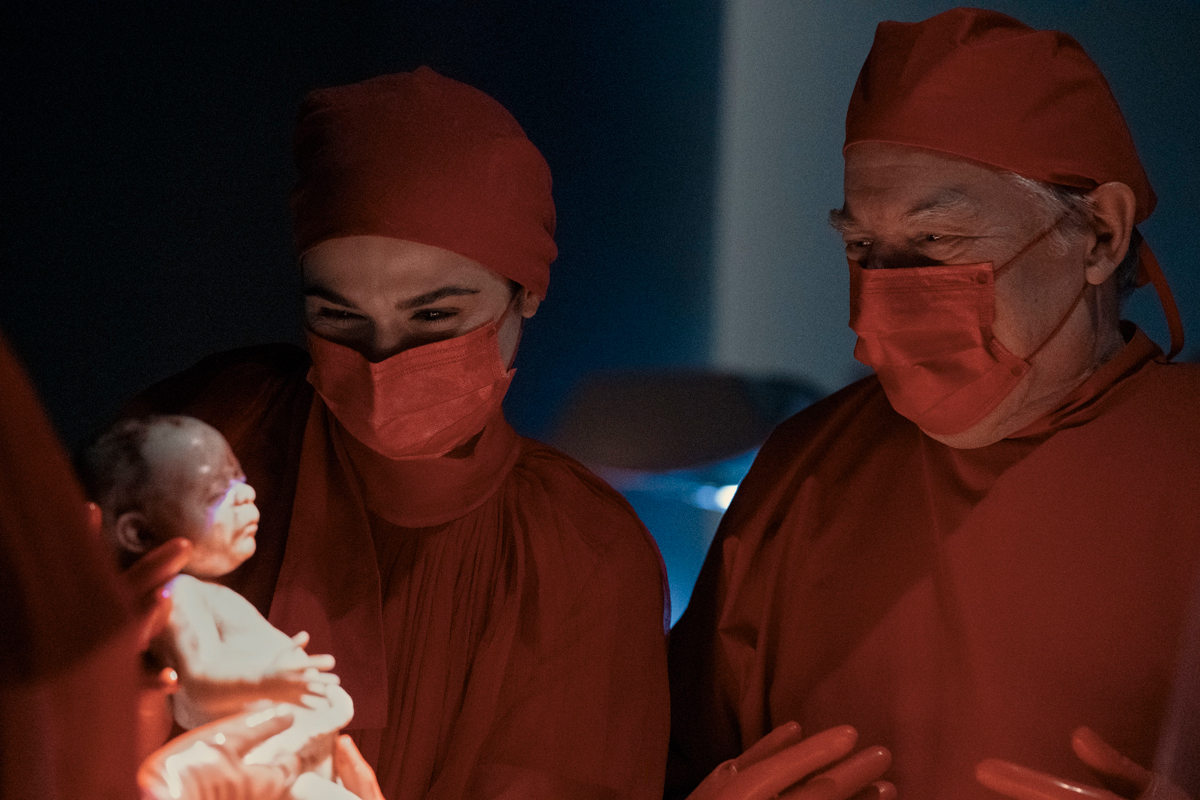
Rachel Weisz as Beverly Mantle and Michael McKean as Marion in Dead Ringers. Courtesy Prime. © Amazon Studios.
The first episode features a montage of scenes representing injustices in the delivery room, which will be familiar to anyone who scans Times headlines. As Beverly and Elliot scurry around the hospital, we get a vignette about the dangers of home birth (baby dies); the moral complexities of surrogacy; and obstetricians’ mistreatment of women of color, a segment that culminates in a devastating long shot of a Black mother swaddled in a bloody hospital gown, dead.
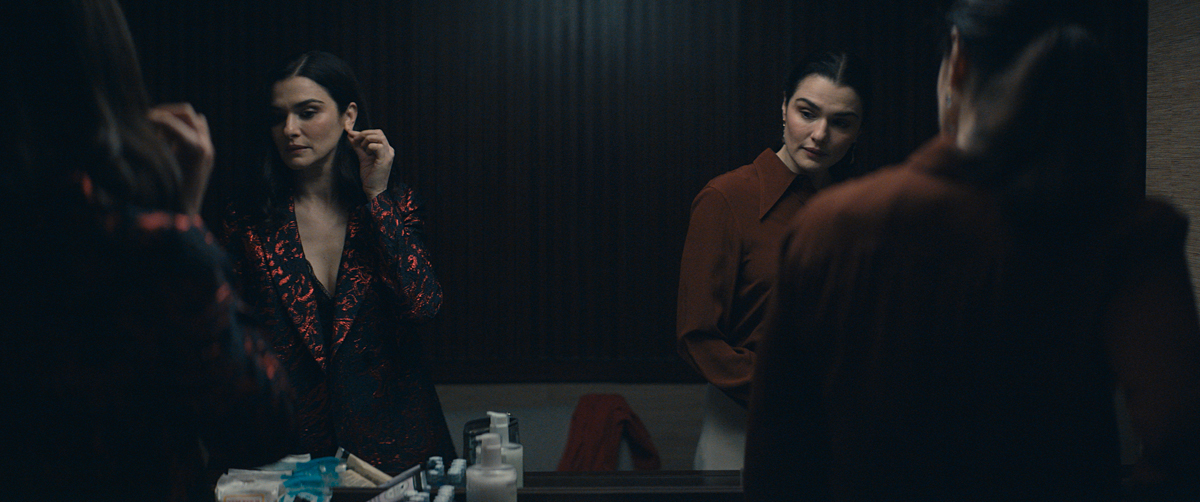
Rachel Weisz as Elliot Mantle and Beverly Mantle in Dead Ringers. Courtesy Prime. © Amazon Studios.
The Mantles—both performed brilliantly by Weisz, a truly saving grace—are ostensibly here to rectify the wrongs wrought by Western gynecology. Beverly is the shy, maternal, social-justice twin. Her dream is to open a center where birthing people will be cared for and respected, unlike under the prevailing US system. Elliot is the masc, aggro, alcoholic twin, a science genius who thinks Beverly’s labor of love sounds nice, but whose own dream is to grow fetuses in tanks. To fund their joint birthing-research venture, the Mantles need to secure funding from an evil pharma-rich family—transparent stand-ins for the Sacklers. Accept the blood money to “revolutionize” women’s lives? The twins decide it’s a sacrifice worth making.

Jennifer Ehle (second from left) as Rebecca and Emily Meade (third from left) as Susan in Dead Ringers. Courtesy Prime. © Amazon Studios.
In her sales pitch to the Sackler-alikes, Beverly first tries pathos, lamenting that day’s tragic deaths in the OR: “It happened because of the system, because the system is fucked, it’s diabolical,” she cries. It “bullies and scares and terrorizes and humiliates and rushes and ruins women!” But this tearjerker is not enough to convince them, so she must deliver a Lean In speech to bring down the Pink Ribbon house. “We are fucking brilliant, okay? We are extraordinary. We are as close to fucking perfection as you can get in this field.” Meanwhile, an amused Elliot swills martinis.
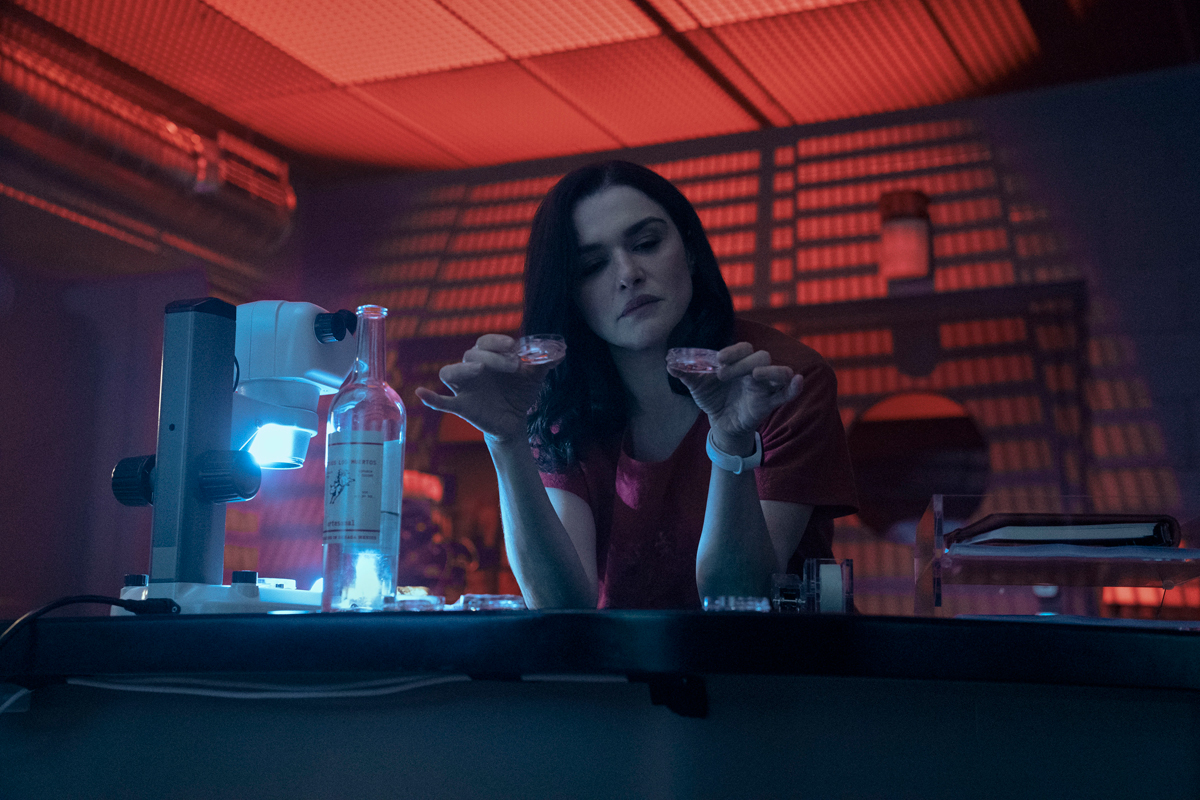
Rachel Weisz as Elliot Mantle in Dead Ringers. Courtesy Prime. © Amazon Studios.
It’s Elliot’s promise of innovation that convinces the Sackler-alikes, who can spot a cash cow. Elliot claims that, given the resources, she can do things like stop menopause by freezing ovarian tissue, which, yes, is something the Goop crowd would pay for. By episode three, the first futuristic, pay-for-play birth-and-research center has been launched. The expansion of what health care in this country already is: a luxury experience.
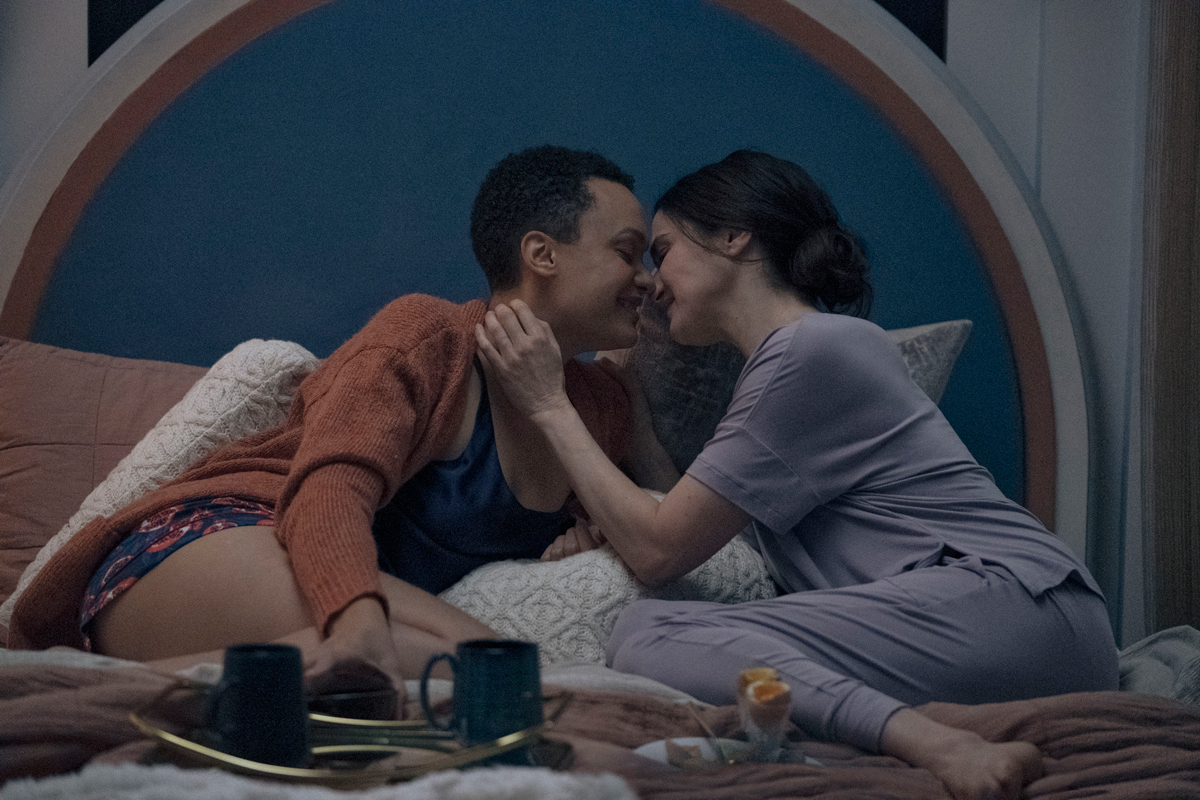
Britne Oldford as Genevieve and Rachel Weisz as Beverly Mantle in Dead Ringers. Courtesy Prime. © Amazon Studios.
Like Cronenberg’s, Birch’s Mantles are homoerotically obsessed with each other, and the arrival of a sexy female patient ruptures the dyad. Beverly falls in love and decides to start a family with her new girlfriend. The perceived betrayal is too much for Elliot, who goes off the rails. Cronenberg’s plotting of the love triangle is immaculate and precise. But Birch lets half a dozen arcs dwindle and various superfluous characters wander around. There are a lot of spooky scenery and effects (Elliot incessantly whispers “baby sister”) whose purpose seems to be to create a creepy vibe, but creepiness does not amount to an incisive critique of the medical-industrial complex in all its glorious violence, racism, sexism, classism.
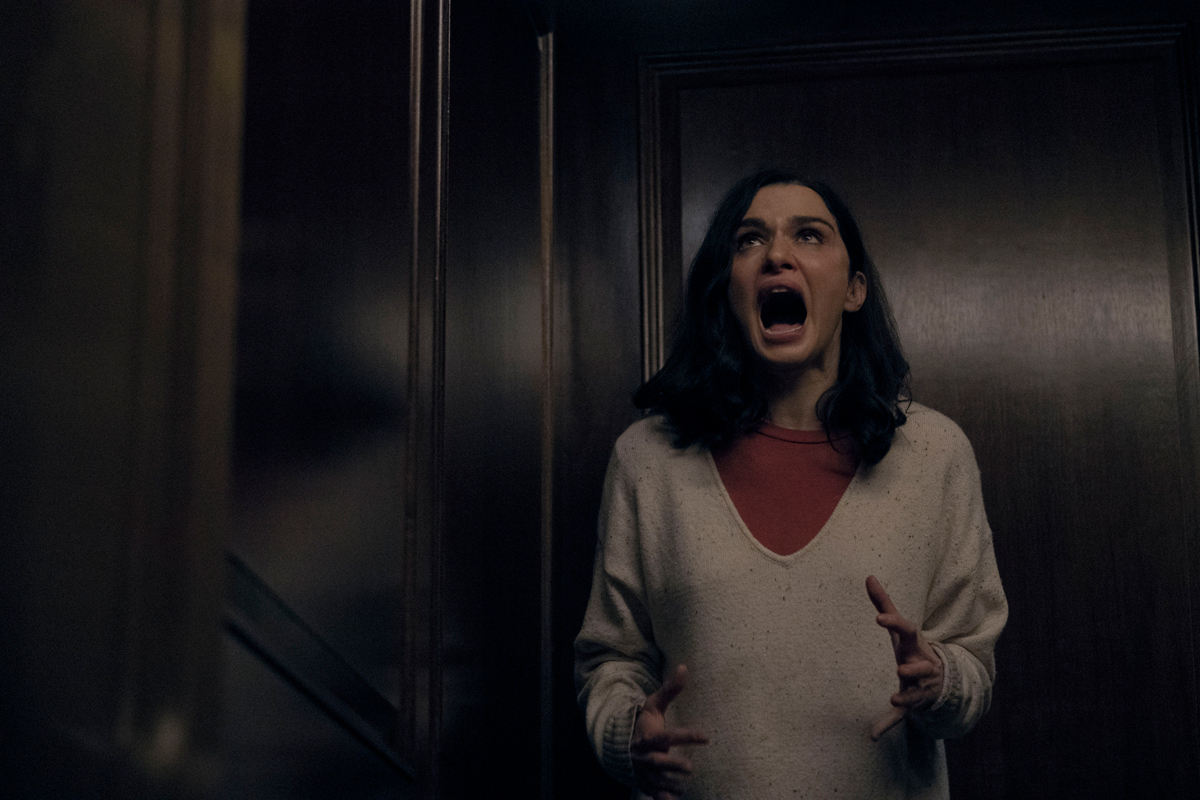
Rachel Weisz as Elliot Mantle in Dead Ringers. Courtesy Prime. © Amazon Studios.
Episode five features a virtuosically bad directorial move: a ghostly apparition of an enslaved Black woman appears to Beverly (who’s wearing a Victorian nightgown that gets soaked in imaginary guilt-blood) to teach her about the racist history of gynecology. Perhaps this didactic haunting would be justified if this information hadn’t already been alluded to by another character. Maybe this show’s true function is to fill the void of social-studies curricula in states where Black and feminist history is no longer taught?
Who is this show for? An audience who will be shocked to learn that the system is fucked, or that “pregnant women don’t have a disease,” as Beverly constantly repeats, a catchphrase that is both entirely true and completely banal? An audience who will feel satisfied that the cruelties of obstetrics are getting some coverage, while also being titillated by the revelation that women can be monsters too? It is certainly unusual to see live births and miscarriages on streaming services, and these unflinching portrayals of everyday bodily processes are some of the high points, but shots of women in bloody gowns aren’t exactly transgressive or progressive. Showing women suffering hasn’t shocked puritanical conservatives into advocating for human rights. The patriarchy, in fact, wants to see women suffer.
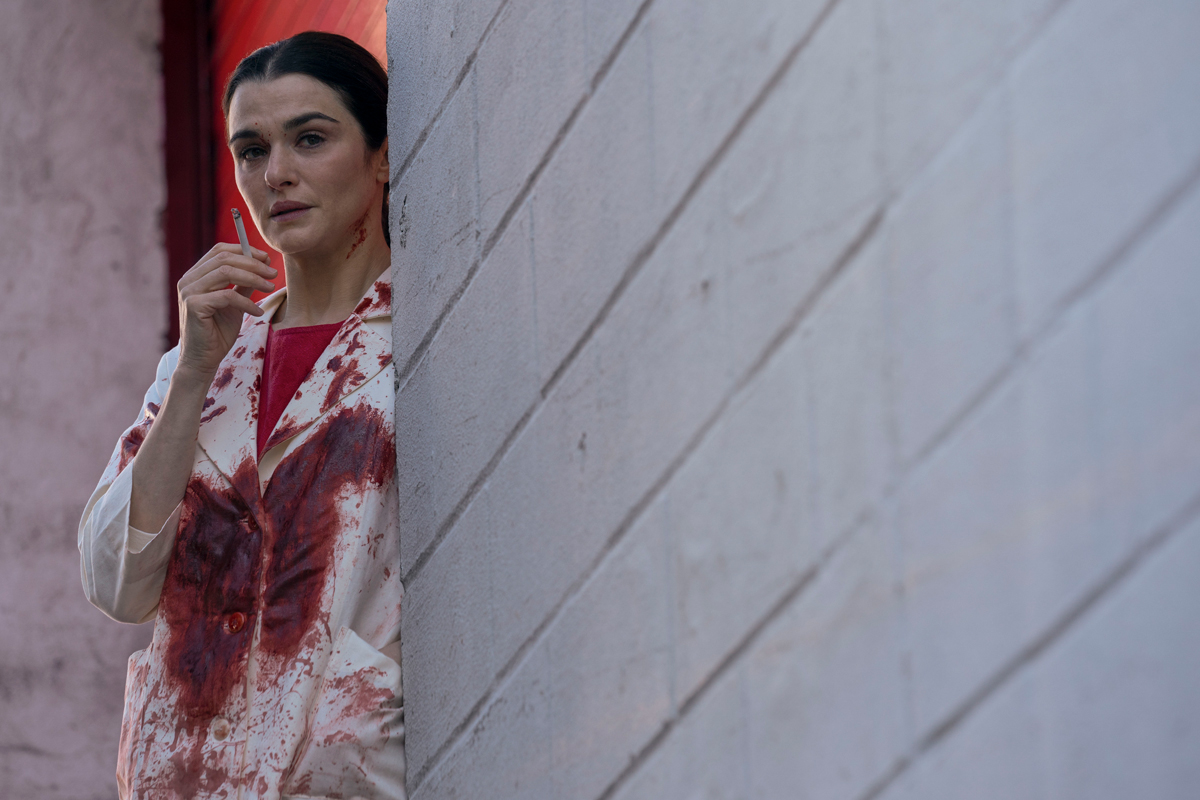
Rachel Weisz as Beverly Mantle in Dead Ringers. Courtesy Prime. © Amazon Studios.
For a show about babies in the Kavanaugh age, it is odd that the topic of abortion arises explicitly only once—when a journalist points out that Elliot’s ability to keep a young baby alive outside the womb might fuel anti-abortion arguments. The Mantles put their heads down, unwilling to offend the funders. The Sackler spoof never gets beyond a parody of the evil transhumanist rich, and the show studiously avoids any reference to the ways health care might be revolutionized beyond innovation and disruption.
Near the end of his movie, Cronenberg delivers a shocking sublimated fantasy. One of the Mantles is splayed across a gynecological chair in his office, knees knocked open, eviscerated. Maybe it’s precisely because I’m a woman with experience below my belt that I don’t always want to be taught what the structural and specific miseries and horrors of gynecology are like, even if I’m being taught by women. What I want to see, if I’m allowed to admit it, is Jeremy Irons with his feet in the stirrups.
Elvia Wilk is a writer living in New York. She is the author of the novel Oval and a book of essays called Death by Landscape. Her work has appeared in publications like frieze, Artforum, Bookforum, the Atlantic, the Nation, Granta, the Paris Review Daily, the Baffler, n+1, the White Review, and the Los Angeles Review of Books. She is a contributing editor at e-flux Journal.